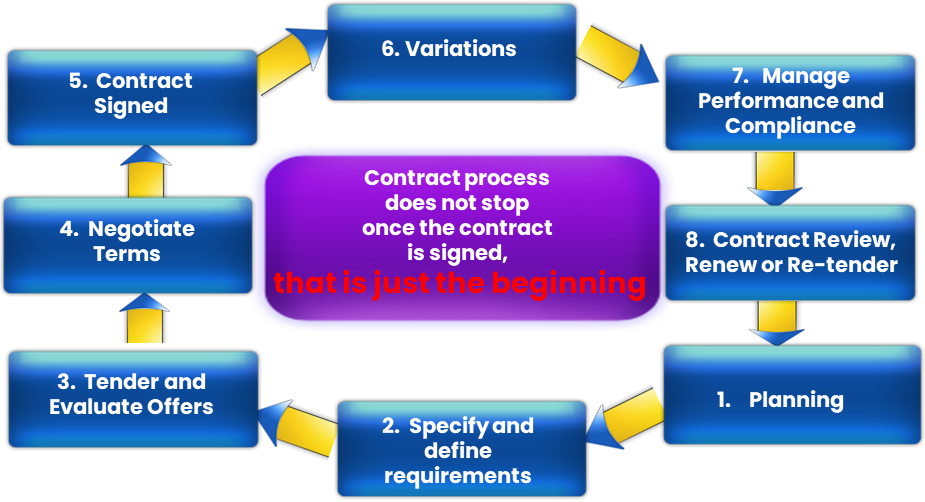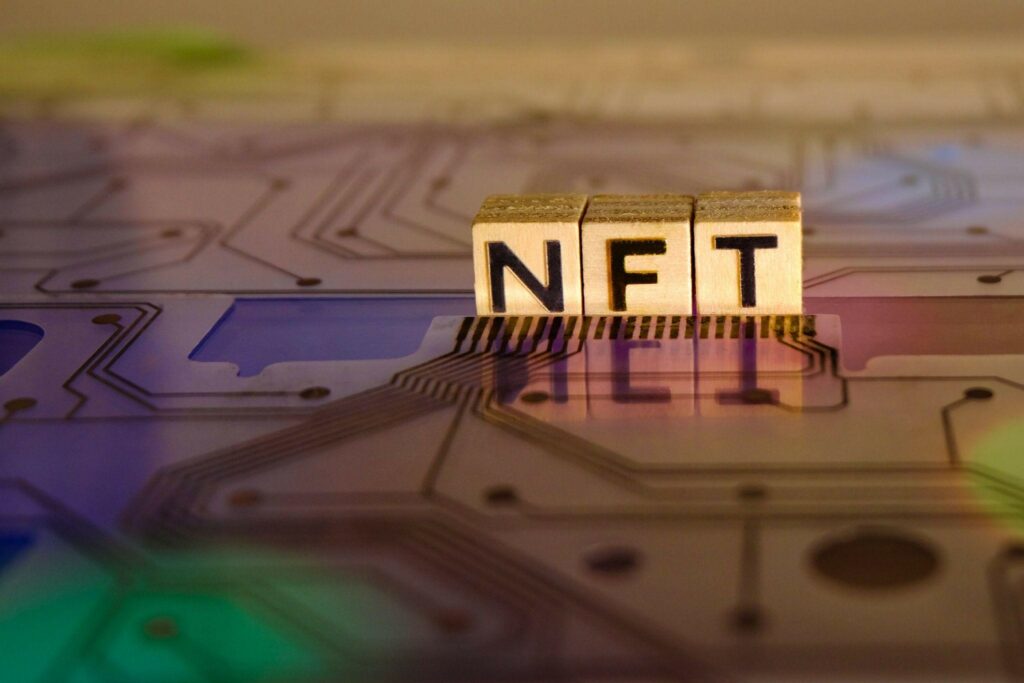Contract Administration and Contract Management
In a highly valued contract for services deal, the contract process may involve contract administrators and contract managers. Contract administrators are responsible for the planning, preparing and ensuring the contracts are executed, whilst contract managers perform tasks after the contracts are executed.
Depending on an organization, one team could manage both the contract administration and management functions. This team will plan, define the organization’s requirements and invite the service providers to provide its proposal. It is a good idea for an organization and its contract process team to include the legal department or lawyer from the beginning of the contracting process to draft the tender documents, draft and review the contract and together with the contracting team, negotiate the deal for the organization. The lifecycle of the contract process may be as follows:

A contract process encompasses pre-award, award, and post-contract stages. Below are 4 components of the contract process:
1. Setting up the contract team
Preparatory activities and decisions include:
- determining the contract team structure and securing the resources required.
- assemble the right people to carry out the contract activities based on their job profiles, skills and competencies.
- ensuring continuity of the contract process functions from contract administration until contract management.
- setting up the contract process team checklist.
2. Managing relationships
Establish and develop a good business relationship by determining the following:
- defining communication protocols, routes and systems.
- establish a process to overcome relationship difficulties.
- anticipate practical problems and dispute resolution mechanisms.
- managing relationships checklist from the pre-award, award and post-contract stages.
3. Managing service performance
Parties to work towards mobilising the service and determine:
- the fundamentals of performance measurement and agree on tools for measuring performance.
- the method of monitoring the provision of service.
- the method to manage delays in the mobilisation of the service.
- to get the best from the service provider and manage the service performance checklist.
4. Contract management
Parties to agree on managing the relationship throughout the contract term by placing importance on the following:
- dealing with disputes throughout the contract term.
- variation to the contract post-contract execution.
- managing termination and expiry of the agreement and determining the transition-out of obligations from the service provider back to the organization or to another third party.
Benefits Of Contract Management
Upon execution of the contract, the parties’ relationship enters the contract management stage. Contract management ensures the delivery of value for money and reliable services. The intentions are to:
- enable parties to meet their contract obligations by ensuring all objectives are met;
- build a mutually beneficial working relationship between the organization and the service provider;
- allow parties to anticipate future needs and requirements.
Having a contract management framework is beneficial to accomplish an organization’s contracting goals. Amongst the benefits include:
- contracts are in one location to maximize efficiencies within the organization.
- spending visibility – you are buying at the right price, quantities and time.
- a solid foundation for performance analysis – evaluation of the service provider’s performance to meet the scope and specification agreed in the contract.
- reducing unexpected spending – cost-overruns.
- contract renewal deadline will not be missed.
Conclusion
Implementing a dedicated contract process framework helps improve your procurement of products and services. Contract management provides one central location where critical contract data are monitored to ensure decisions are taken on time to reduce potential contract risks. Contract management also provides visibility and insight for the department heads, the contract team and the legal department to monitor contract adherence and performance. In short, the contract process does not stop once the contract is signed but needs to be monitored throughout the contract term for potential changes or breaches of the contract. Hire a contract lawyer and get professional legal services for the benefit of your business.
What should you do before making a contract? Watch our video.







